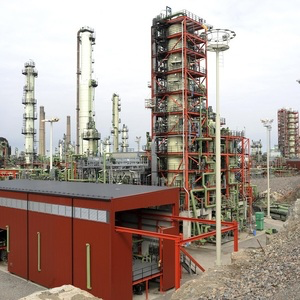European oil refiners, including TotalEnergies and Neste, have reported significant drops in profit margins amid decreasing demand, signaling an end to the recent period of high profits that followed Russia’s invasion of Ukraine.
Profit Declines and Industry Challenges
TotalEnergies, Europe’s largest refiner, experienced a 34% decline in operating income for its refining and chemicals division due to lower margins from processing crude oil into fuels like diesel, gasoline, and jet fuel. The company’s benchmark European refining margin marker fell by 37% in the second quarter compared to the first quarter of the year.
The resurgence of European refining was initially driven by the European Union’s ban on oil imports from Russia, a major diesel supplier. However, new refineries in Africa and the Middle East, coupled with slower economic activity in Europe, have renewed pressure on the sector. TotalEnergies, which operates refineries globally, expects continued pressure on margins into the third quarter.
Global Market Trends and Predictions
TotalEnergies’ CEO Patrick Pouyanne indicated that refining margins are returning to pre-war levels, stating, “Margins are back to where they were before the last two remarkable years … We have come back to reality.” Other major oil companies like BP, Shell, and Exxon Mobil have also warned that weaker refining margins would impact their second-quarter results, which are due next week.
U.S. refiners are similarly expected to report significantly lower earnings for the second quarter following a lackluster summer driving season.
Finnish refiner Neste reported its first net loss in a decade, impacted by lower diesel and biodiesel prices and planned maintenance at its Porvoo refinery. The company also reduced its annual renewables margin for the second time this year. Neste highlighted ongoing global economic uncertainty and geopolitical tensions as factors contributing to market volatility.
Spain’s Repsol also reported a sharp drop in refining margins for the second quarter due to lower gasoline prices and higher crude feedstock costs. Following these results, analysts at RBC Capital Markets downgraded Repsol’s rating, citing a deteriorating market environment.
While crude oil prices remain supported by output cuts from the OPEC+ group of producers, new refinery ramp-ups and sluggish demand for products have put pressure on refining margins. RBC analysts expect a muted outlook for refining margins into 2025, signaling an end to the extraordinary multi-year period for Repsol’s downstream earnings.
As the global refining industry adjusts to these new market conditions, companies will need to navigate a complex landscape of economic and geopolitical factors to maintain profitability and operational efficiency.
Source: Reuters



